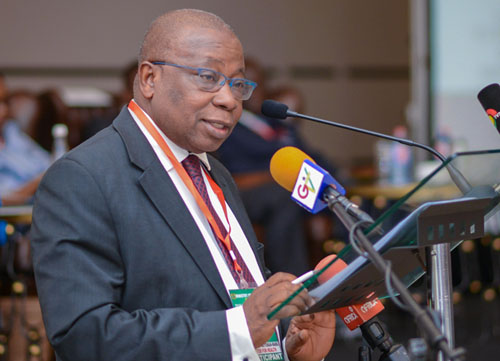Kwaku Agyeman-Manu
The government’s contract with middle-man Sheikh Ahmed Dalmook Al Maktoum to supply the country with Sputnik vaccines has been terminated, Health Minister, Kwaku Agyeman-Manu has disclosed.
He told Parliament’s bi-partisan committee investigating the country’s procurement contract of the Sputnik vaccines at its first sitting yesterday that agent Al Maktoum walked out of the contract after he failed to deliver on the agreement, following an initial supply of 20,000 doses to Ghana.
According to the minister, Al Maktoum, who claimed to be an agent of the Sputnik vaccine manufacturer in Russia, had said in a letter that his agency had “endured a series of challenges” that had unduly delayed the delivery of vaccines and “limited availability of stock for both component 1 and 2.”
The minister indicated that the letter, dated March 9, noted that the shortage of supply of vaccines was “a global issue and challenge being faced by majority vaccines suppliers.”
“Furthermore, we are working in collaboration with our partners and we will continuously deploy our best efforts to resolve the continuity of supplies for Ghana,” he read the letter further.
The minister continued, “We wish to terminate the vaccines supply agreement. We hope that when the supplies are restored we will be able to re-engage on new terms and follow the due process for that purpose.”
He added that “they are not just terminating it yesterday. After they have signed the contract, they gave us two weeks to supply the first 300,000 we ordered, based on our ability to give them (Maktoum) letters of credit as part of the terms of the agreement.”
Mr. Agyeman-Manu said Ghana’s letters of credit were delayed and got to Maktoum agency at a later date and “they came back after they had confirmed that they had run out of stocks.”
“Russia was going to supply them more stocks and they would supply us within two weeks. After two weeks we enquired and they said they still had not got the supply,” he further explained.
“So we started engaging them that if that is the matter they should permit us to amicably withdraw from the contract so that we can do something different to find vaccines for ourselves.”
Sputnik Price
Mr. Agyeman-Manu said the ministry realised that $19 per dose price from the middleman was “a little bit too high so we did not lock ourselves up to the quantities we were looking for.”
“We only signed for 3.4 million doses and we started also looking at the possibilities of getting to the source if we could get it at a cheaper price,” he disclosed.
According to him, the initial negotiations with Sheikh Ahmed Dalmook Al Maktoum and SL Global were all against the backdrop of his inability to directly access to the vaccines, saying “because if we had access to vaccines, why would we have gone to that extent through middlemen? I have said that initially when we started our vaccine procurement plan, private people like Maktoum and SL Global were not part of our strategy.”
He indicated that “when we got the supply chain line cut abruptly by what happened in India, and then we were put into the domain where we didn’t have options than to begin to engage private people who claimed they had connections to give us the vaccines.”
He said after entering into the agreement, a lot more information came up about the middlemen who claimed they had access to vaccines.
“And I said to myself that if they had access to the vaccines why don’t we engage bilateral and multilateral in accordance with our plan that we had initially?
“That is what motivated us to start writing to sources that would give us what we actually needed. Then again their daily schedule was a little bit too large, apart from the pricing that we were not sure about and therefore we needed to look elsewhere,” the minister maintained.
AstraZeneca Promise
Already, AstraZeneca Africa Director, Barbara Nel, has assured that a total of 1.6 billion fully funded COVID-19 vaccines would be made available for COVAX dependent countries later this year through to next year.
She told Citi TV yesterday that the challenge with AstraZeneca’s distribution of vaccines to African countries was as a result of the second wave of the pandemic that hit India and subsequently led to a ban in the exportation of AstraZeneca vaccines by the Serum Institute of India, one of the world’s leading COVID-19 vaccine manufacturer.
She said that AstraZeneca is working closely with COVAX and various governments to ensure the vaccines are rolled as scheduled.
“There has been a significant breakthrough that has happened in the last couple of weeks through a Japan summit … where countries that have an excess of vaccines are essentially donating,” she said, adding “and what we currently know within the COVAX facility there is commitment around 1.6 billion fully funded doses in 2021, and into 2022.”
“It is a very disturbing image map and the situation that we have in Africa right now has reached a critical point. I think one of the key thing is, in February, March we saw alot of initial donations coming in, we saw Ghana leading the way, the first recipient of COVAX vaccines, and it was almost a bit of a competition between Ghana and Ivory Coast, who is going to administer the first vaccine and in the course of this a really devastating second wave that we saw in India, and one of the things that happened to the export from India, is that there was basically a ban put on that, and that has caused this gap,” she disclosed.
By Ernest Kofi Adu, Parliament House


